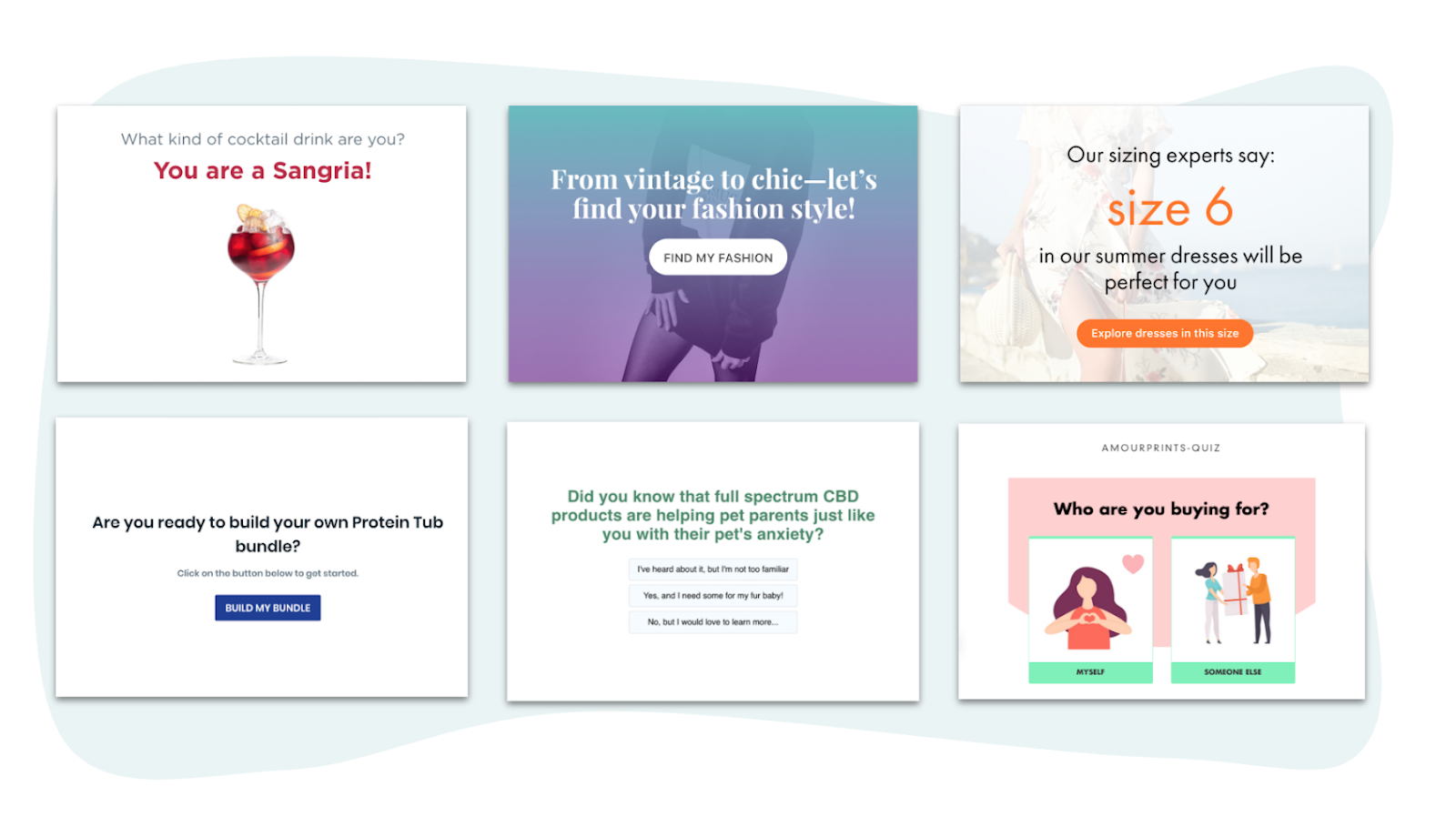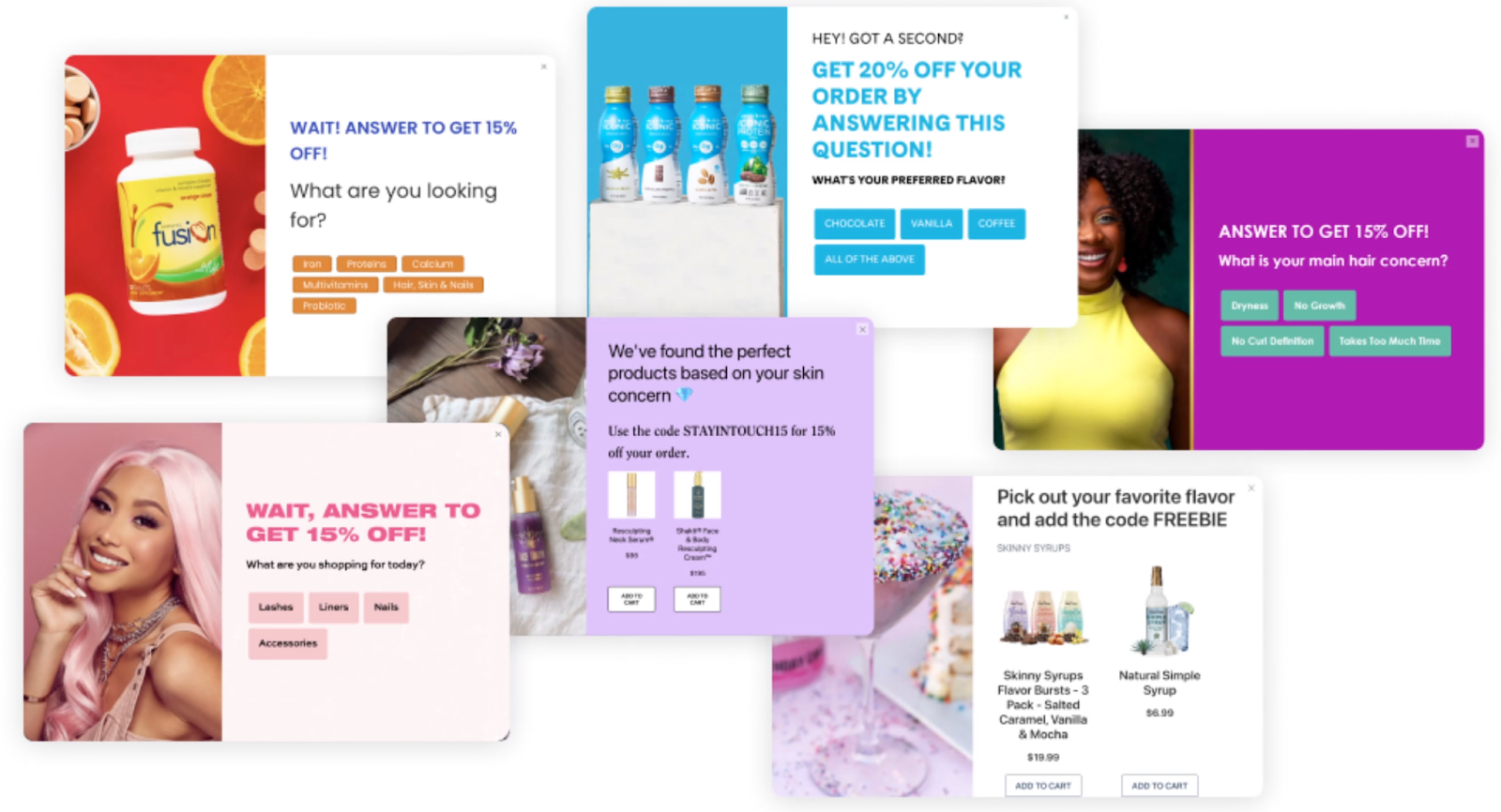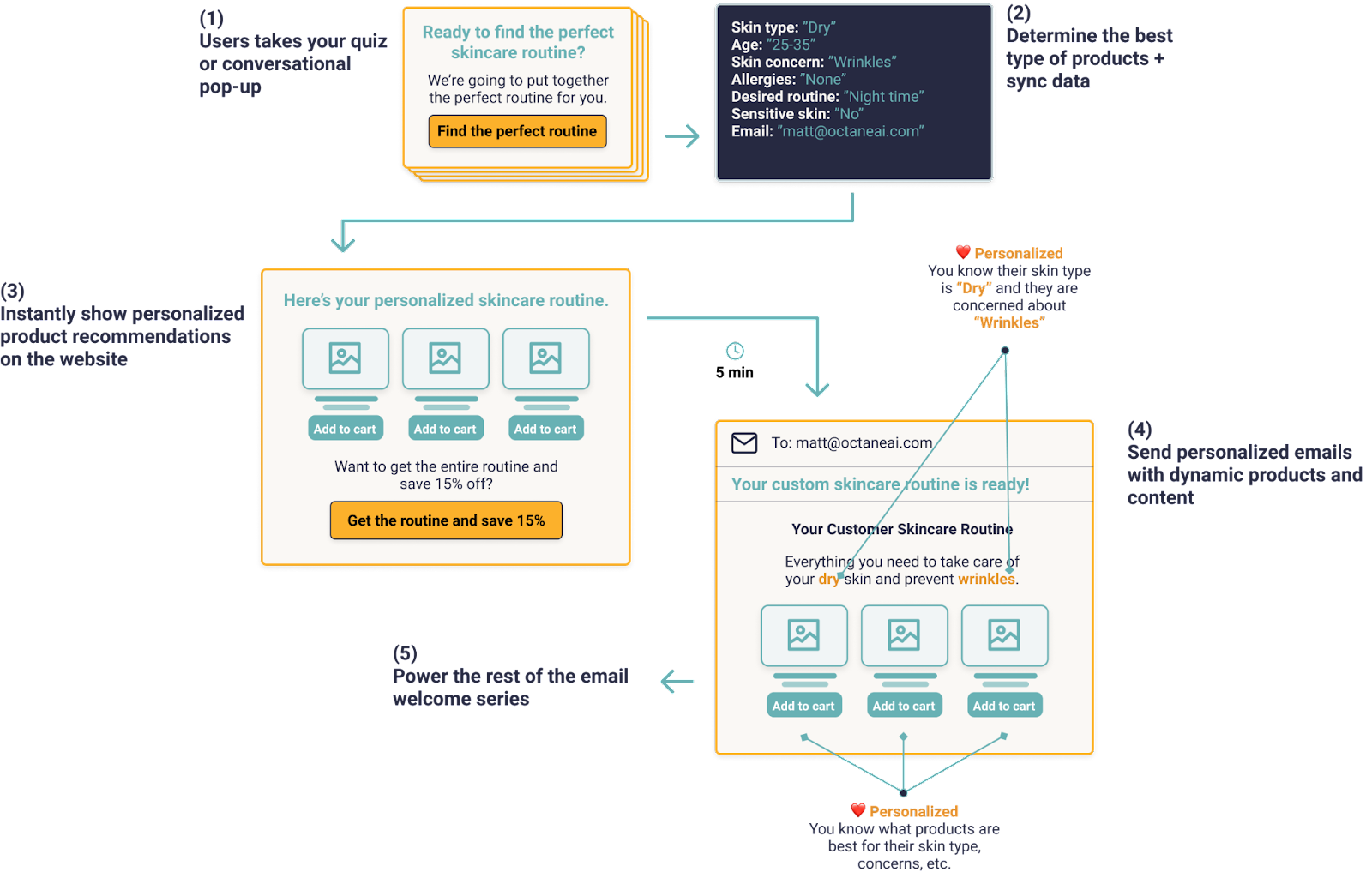Zero-party data has very quickly become the biggest buzzword in marketing and digital advertising. Unlike third-party data, which is collected by aggregators and ad platforms through third-party cookies and unsavory tracking techniques, zero-party data is collected voluntarily and directly from customers.
Think of the kind of things you’d tell a store associate helping you find the right gifts to purchase for your family — size, style, skin concerns, gender, budget, taste profile, eating habits, what type of pet they have, etc. That’s zero-party data.
Zero-party data marketing started when the scrutiny on ad tracking ramped up, but became a necessity with iOS 14.5. With the vast majority of users opting out of data tracking on iOS, marketers need new sources of data to power their campaigns and replace the data they currently borrow from tracking cookies — which will also go away in 2023.
This is especially true as more consumers demand personalized experiences from the places they shop. Implemented correctly, zero-party data marketing allows you to treat every customer as an individual, personalize their experience with your brand and build real relationships.
Help TechCrunch find the best growth marketers for startups.
Provide a recommendation in this quick survey and we’ll share the results with everybody.
While a lot of articles have discussed the importance of zero-party data, very few have gone into how to collect this valuable data and properly leverage it for better conversions, loyalty and customer satisfaction. That’s why I decided to write this piece. Think of it as a miniguide on how to begin your journey as a zero-party data marketer.
Let’s start with some of the most important tools for zero-party data collection.
Quizzes and recommendations are the backbone of zero-party data

When you hear “quiz,” you might be tempted to think of a BuzzFeed-style personality assessment, but in reality, they are the fundamental way we figure out what products we want to buy and what package to get.
Think about entering a cosmetics store. You know you need some collection of skincare products, but you don’t know which routine to follow or all the possible options for each part of the routine. A store associate does, however, and they usually help you find the right skincare routine and products based on a series of questions they ask about your skin’s condition, concerns, allergies and more.
A recommendation quiz is this interaction online. It gives your customers more confidence in their purchase and can help you collect and use zero-party data to personalize your customers’ experiences with your brand, from onboarding to post-purchase.
You can use quizzes to make an onboarding experience, a gift finder, a guided shopping experience and much more. These quizzes also have the benefit of a high conversion rate — 10% to 30%+ conversions to sale versus the average website conversion rate of 2% to 4%.
Some tips for creating a high-converting quiz that collects zero-party data:
- Make sure you ask for contact information (email or phone number) somewhere in your quiz. The conversion rate for quizzes is much higher than other methods of getting an opt-in, like a standard pop-up. More importantly, you can’t send follow-up emails or text messages with zero-party data without contact info.
- Don’t ask too many or too few questions. A quiz that asks 25 questions will get a high drop-off rate, but users also won’t trust a quiz that only asks one question, because it can’t possibly give them a good recommendation with so little information. Five to 10 questions is often the sweet spot. (There is an exception, which we will cover next.)
- Make your quizzes visual. We’ve found that Octane AI quizzes that use GIFs and images tend to have a 20% better completion rate than those that rely solely on text.
Here are some examples of beautiful zero-party data quizzes:

Make your pop-ups conversational
Traditional pop-ups are intrusive, add no value and make no sense. Imagine walking into a store and having a store associate harass you right as you walk in, offering a 10% discount in exchange for your phone number. You’d find it very strange and likely be turned off immediately. That’s why it never happens in real life — yet it happens all the time online.
Instead of a traditional pop-up with a low conversion rate (2% to 4%), you should use a pop-up as an opportunity to help your customers and collect zero-party data in the process. That’s what a conversational pop-up does.
Think of a conversational pop-up like a quiz within a pop-up. It works in three steps:
- Step 1: The conversational pop-up asks a helpful question, most often, “What are you looking for?” or “How can I help?”
- Step 2: Only after the question should the pop-up ask for an email address or phone number. We’ve consistently seen that the opt-ins are much higher if you ask a question first before asking for an email address or phone number. The pop-up should offer to send them recommendations via email.
- Step 3: Show recommendations in the pop-up. For e-commerce brands, this could be specific products to buy; for SaaS companies, this could be a tailored sales experience or feature recommendation. You should also send a follow-up welcome email or text that references the zero-party data you’ve just collected.
Conversational pop-ups have endless possibilities. Here are some examples to help you get inspired:

Surveys, SMS, chatbots and more ways to ask questions
While quizzes and conversational pop-ups should be part of any zero-party data marketer’s toolkit, there are many other ways to collect zero-party data that you should explore. Here are a few other common methods:
- Post-purchase surveys: If a quiz is the top-of-funnel, pre-purchase experience, then the survey is the post-purchase zero-party data collection tool of choice. You can collect new and valuable information through post-purchase surveys, such as where they found your brand, experience level with your product, where they could use help, feature requests and more.
- Chatbots: A good chatbot — either on the website or on a messaging channel like Facebook Messenger — offers an opportunity to collect structured zero-party data. Use a website chatbot tool to ask for key qualifying information. You can even build a conversational quiz within a chatbot — this is actually how Octane AI first came up with the idea of an embeddable product recommendation quiz!
- SMS: SMS marketing is hot, and its conversational nature gives you the opportunity to collect zero-party data through conversation. Brands like Dirty Lemon and Rebecca Minkoff already use SMS to collect zero-party data this way.
- Customer support: Your customer support tools and team are another important way to collect zero-party data. It’s essential to save stated preferences in a CRM, CDP or zero-party data platform so that you can reference what you’ve learned in future customer support and marketing conversations.
Anytime and anywhere you can ask a customer or user a question is an opportunity to collect zero-party data.
Now that we’ve covered zero-party data collection in-depth, let’s talk about how to use the data to improve and personalize the customer experience for better conversions, sales and customer satisfaction.
Leveraging zero-party data in your marketing channels
The first thing you need to do with any zero-party data you collect is to reference it in any campaign or flow sent to a customer or prospect. A great zero-party data collection platform will integrate with the tools you use for email and SMS marketing.
Hunter & Gather, for example, implemented a quiz to gather diet preferences and recommend keto and paleo-friendly products to their customers. Then the brand used this information to personalize their email welcome series — specifically suggestions for new products they may want to try. The quiz itself garners a quiz-to-purchase conversion rate of 21%, which is well above the average on-site conversion rate of 2%.
Even more impressively, the zero-party data they collected and used to personalize their email marketing increased their owned marketing (email + SMS) revenue by 29% and increased their revenue from email flows by 258%!
Here’s a diagram of what this flow can look like, from quiz to zero-party data collection to email personalization:

If those stats caught your attention, here are some tips for leveraging zero-party data in your marketing:
- Reference zero-party data in the subject line of the first email you send customers: Show them products or actions you recommend based on their quiz answers. This will get their attention immediately.
- Send different emails or SMS messages based on their answers: Did one of your customers say they love to cook? Then you should send them some recipe recommendations! On the flip side, if they said they hate to cook, send them an email with easy-to-order or easy-to-make meals to show you listened to them.
- Utilize zero-party data in your re-targeting ads: Pretend you are a pet food brand and a prospective customer says they have a cat and no dogs. Why would you ever show them an ad for dog food? The next time they login to Facebook, you can show them a re-targeting ad that lets them know you have specific recommendations for their cat. It’s simple, but differentiated ads have a much higher conversion rate than generic ones. Use the data you collect to personalize your ads and drive more customers to your website.
Gaining advanced insights from zero-party data
There is another less tangible but perhaps even more important benefit to collecting zero-party data: the insights you gain on your customers. Doe Lashes, a multimillion dollar lash brand, uses a quiz to recommend the right lashes for its customers. One of the quiz’s questions asks how experienced their customers’ are with wearing lashes.
The Doe Lashes team assumed most of their customers were experienced with lashes. That’s why they were surprised to learn that, in fact, most visitors to their website had never bought or worn lashes before! With this information, Doe Lashes was able to create a whole new lash education sequence via email and on their website, helping them increase sales dramatically.
All of this from a single zero-party data point. What kind of insights could you gain about your business if you had more zero-party data on hand?
With new data privacy changes happening at lightning speed, it’s more critical than ever for every marketer to collect their own zero-party data and rely less on third-party data. I hope some of these tips and examples will help speed up your zero-party data journey.































Comment